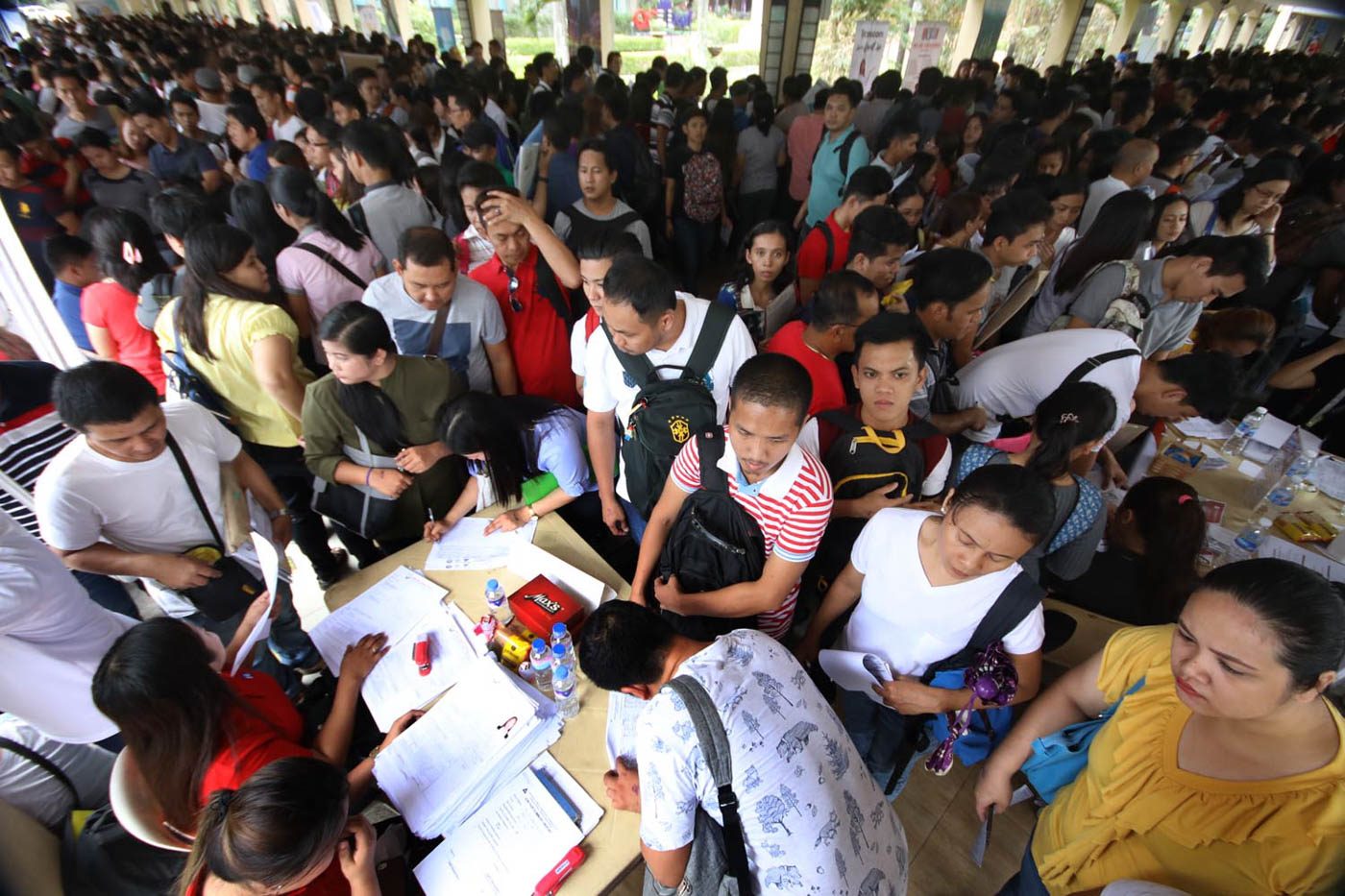SUMMARY
This is AI generated summarization, which may have errors. For context, always refer to the full article.

MANILA, Philippines (UPDATED) – The Department of Labor and Employment (DOLE) on Monday, November 5, confirmed the P25 across-the-board wage hike for minimum wage earners in Metro Manila.
New minimum wage rates for agricultural workers, firms in the manufacturing sector with at most 10 workers, and firms in the retail as well as service sectors with at most 15 workers will earn at least P500 daily, from the previous P475.
Non-agricultural workers, meanwhile, will soon have a daily minimum wage of P537 from P512.
Under Wage Order No. 22, the P10 cost of living allowance (COLA) will also become part of the basic pay. Previously, the minimum basic pay ranged from P465 to P502, with an additional P10 COLA.
National Wages and Productivity Commission Executive Director Criselda Sy explained that the integration of COLA in the basic pay means bigger computations for overtime pay and 13th month pay.
The new wage order will be effective 15 days from publication in a newspaper. Sy said a copy of the order will be sent to their office on Monday afternoon.
The order was signed by DOLE, the Department of Trade and Industry, National Economic and Development Authority, and an employers’ group representative. Labor group representatives signed the order, but with reservations.
The wage order can still be appealed within 10 days upon publication. But Sy said there were no appeals that had been successfully granted in the past.
Higher inflation?
Asked whether the regional board could have approved a higher increase, Sy explained that doing so might lead to “secondary inflationary effects.”
“It could be a potential source of secondary inflationary effects. Inflation is at 6.7% and it could be higher if we implement a higher wage hike,” she said.
The Bangko Sentral ng Pilipinas said on Monday that the P25 wage hike had already been taken into consideration in its latest inflation forecasts – 5.2% for 2018, 4.3% for 2019, and 3.2% for 2020.
Sy also warned that the minimum wage policy “may be overburdened” with a higher rate, and may also lead to layoffs, if employers are unable to accommodate the additional cost.
Labor Secretary Silvestre Bello III noted that the decision to implement the P25 wage hike was reached to “balance” the interests of both workers and employers. The Associated Labor Unions-Trade Union Congress of the Philippines (ALU-TUCP) had called for a P100 hike, down from the initial P334, during discussions.
“In deciding [the] minimum wage adjustment, the board needs to balance the needs of workers and their families, with the capacity of enterprises to pay the additional labor cost, without impairing businesses, especially [their] capacity to continuously generate jobs,” Bello said.
Based on Republic Act No. 6727 or the Wage Rationalization Act, each region in the Philippines has a unique minimum wage set by the Regional Tripartite Wages and Productivity Boards. The factors taken into consideration include the poverty threshold, employment rate, and cost of living specific to the region.
‘Overworked, underpaid workers’
Labor groups slammed the “measly” P25 increase, saying it is “not a relief” for workers.
ALU-TUCP said inflation would continue to “prolong” the plight of workers, and warned of further strikes.
“By not giving a substantial wage increase, we are looking at disgruntled, dissatisfied workers, with or without unions, demanding higher wages, directly confronting employers and business owners, creating tension within the enterprise level thereby disturbing and breaking the fragile industrial peace,” ALU-TUCP spokesperson Alan Tanjusay said.
Meanwhile, Partido Manggagawa said the hike is “30% short” of making up for the P35.84 “erosion” in wages, according to its own estimate.
“P25 is just alms, not relief to overworked yet underpaid Filipino workers. P25 cannot compensate for the [almost] 7% runaway inflation in Metro Manila and real wage stagnation, despite 50% productivity growth from 2001 to 2016,” Partido Manggagawa president Rene Magtubo said. – Rappler.com
Add a comment
How does this make you feel?
There are no comments yet. Add your comment to start the conversation.